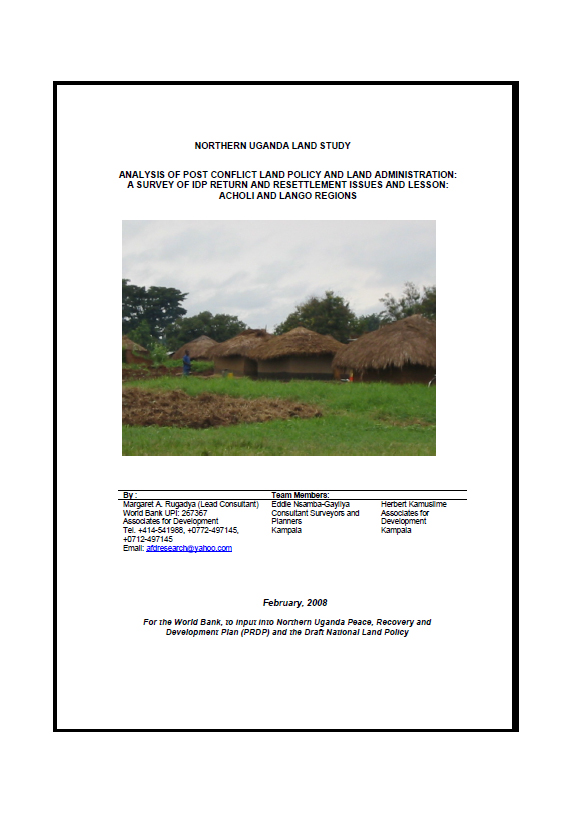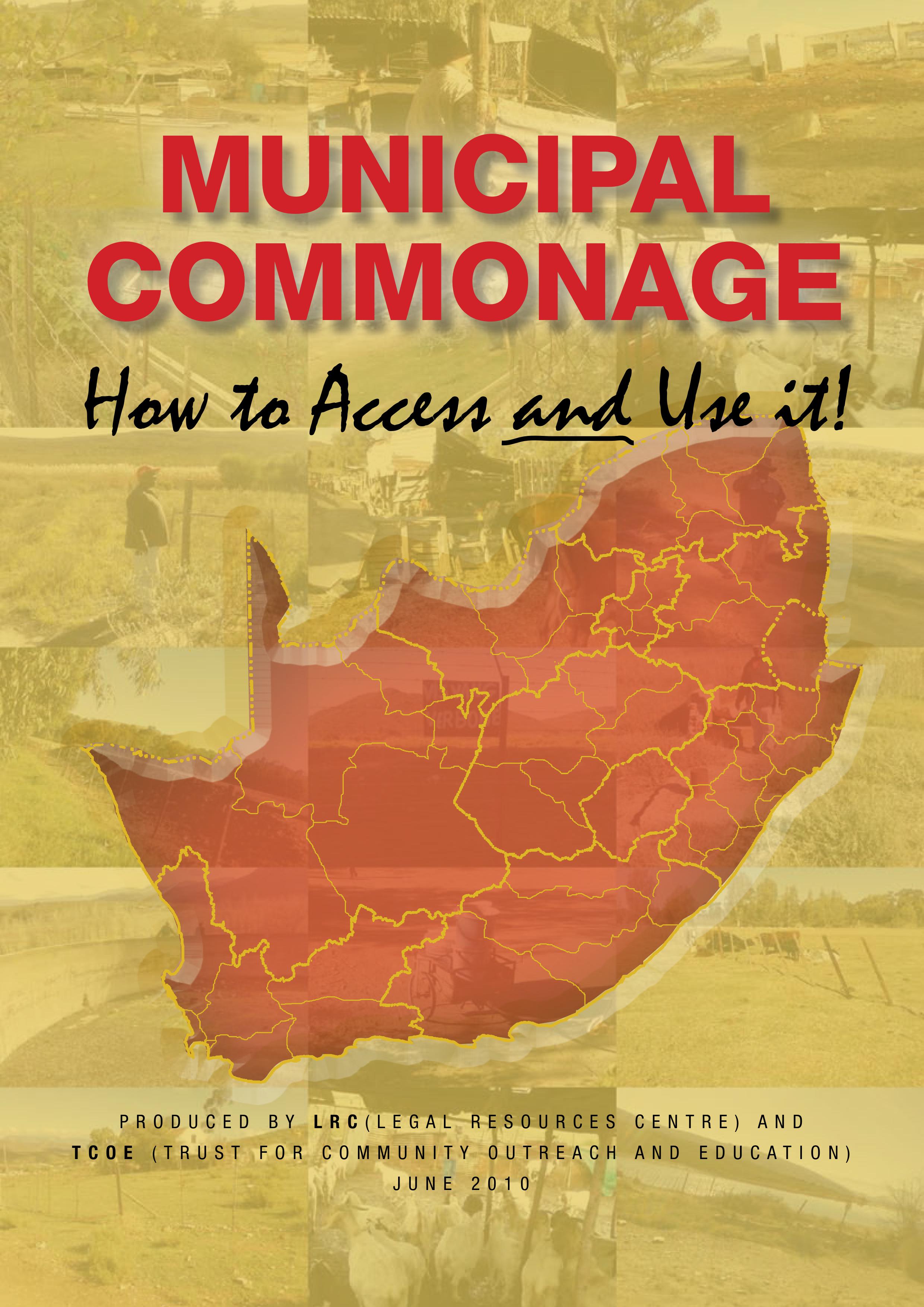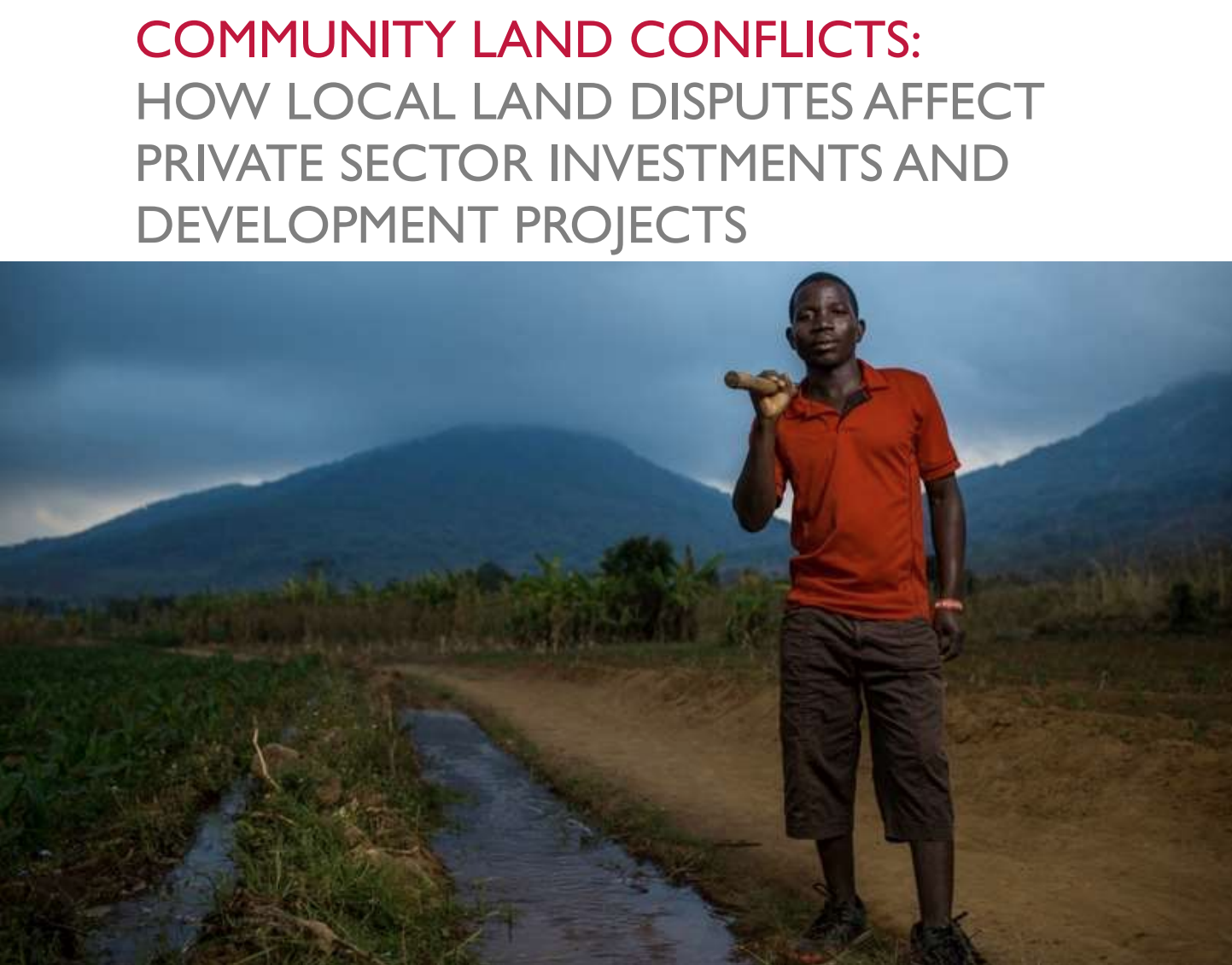LAND TENURE AND ITS IMPACTS ON FOOD SECURITY IN UGANDA
The need to establish the link between land tenure and food security is increasingly gaining currency as governments and development organizations refocus their effort towards assisting farmers to move away from subsistence farming to commercial agriculture. It is argued that given how land plays a crucial role in the livelihoods of most Africans, food security and poverty reduction cannot be achieved unless issues of access to land, security of tenure and the capacity to use land productively and in a sustainable manner are addressed.










